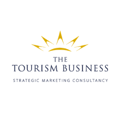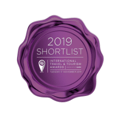A lot is riding on this summer for tourism businesses, and so many are furiously planning for their imminent re-opening. But with 101 things to think about, from re-implementing safety measures to maximising capacity and revenue, it can be difficult to know where to focus.
Let me help you, by introducing you to a simple way to organise your relaunch marketing strategy.
The smartest thing to do now, to make it easier for your budget and yourself, is to simplify by focusing on what delivers the best return.
Taking things back to basics
Twelve months ago, travel and tourism industry marketing mixes were very broad and as a marketer, you had to juggle an increasing amount of channels, both online and offline. But budgets are being squeezed now, so actually, there’s a requirement to cut back. And when you cut back, you can’t keep the same level of complexity.
The smartest thing to do now, to make it easier for your budget and yourself, is to simplify by focusing on what delivers the best return.
‘Who, Where, Why’
All we want you to do is focus on the Who, Where and Why of your business, and they all play into one another. By understanding who you are reaching out to, you will be able to work out where to reach them, and more importantly why they interact with brands in the way that they do.
This is a universal question for any business, no matter its size. Nailing the who, where and why is just as important for the B&B down the road as it is for an international hotel group or leading attraction.
So let’s look at each one in turn.
Who
The ‘Who’ is your target demographic, the kind of person or people you’re looking to attract. And when it comes to reopening, it’s important to think of who is the most likely to travel and visit post-lockdown.
This may mean moving away from your previous strategy, as your audience may have changed since lockdown. Especially if you have relied heavily on family audiences in the past, as competition is set to be fierce.
For example, say you’re targeting millennials without kids (25-38ish) – that is a pretty strong ‘who’ to be considering. They are likely to travel, they have a high level of expendable income and a hankering to get out and doing something. But there are others, and you should work out who they are for you.
Where
Then you have to consider the ‘where’. By that, I don’t mean where they intend to travel, but more where to find your ‘who’. Knowing where your audience is, is the most fundamental part of being able to reach them.
Once you know where they are, you can consider your marketing strategy, but until that point, it’s no better than simply hoping they wander past your billboard. And we don’t have time for that.
What do they watch? What are they reading? What social media channels do they use? Where do they go for their news? Once you know what channels and platforms they are on, then you share your reopening message in the places they expect to hear from you.
Why
Finally, ‘Why’. Why are people making this journey or looking to travel? What are their motivations?
Well, number one, they’ve not been able to travel, so they may be desperate to get out of the country or away from home. Most people would probably say they want to escape to the sun. But what if we got really good weather predicted this summer? Then that could well be a compelling enough reason for people to stay here in the UK.
At that point, the ‘Why’ would be to stay with their family or friends. Do they need a relaxing break from the kids? Do they need an adventurous break with their partner as they have been bored out of their minds for going on 12 months?
By nailing the ‘why’ you will be able to truly connect with your audience and encourage them to book with you.
The strategy in practice
It’s expected that multi-generational travel is going to increase significantly over the next 12 months as we start to consider the things that we have missed due to lockdown and COVID restrictions.
For my family, this summer we’re off to our favourite Majorcan all-inclusive resort. We love going there, the kids are looked after, they have great food, it’s a lovely location and myself and my wife can have some relaxing down-time whilst the kids are in an amazing kids club which they adore.
But this year the in-laws are coming with us…
So, if I were that resort, and knowing that 70% of the people that go there are British and that those multi-generational family breaks are the thing, I would consider this in my marketing strategy. Maybe the messaging should include some kind of big family discount; how can you find a way of getting 10 people to visit you in one go, rather than just four?
In this scenario, one of the groups of people I’d be targeting are the grandparents who have missed their grandkids, and the parents who might want their kids to see their grandparents.
From the perspective of the parents – if their ‘why’ is to have guaranteed sun during summer, but also to relax, I’d be communicating messages around kids club, babysitting, adults-only pools and the spa.
So that’s the who, the where and the why taken care of. Any organisation can look at this virtuous triangle and come up with an absolutely fit-for-purpose relaunch marketing strategy right now, rather than over-complicating it.
It’s not brand new stuff, and it doesn’t need to be.
A lot is dependent on how you perform over the next three months. So don’t stress, do less. Don’t overcomplicate it, bring it back to the basics. Bring it back to Who, Where and Why. For any questions on how to do this, get in touch .











